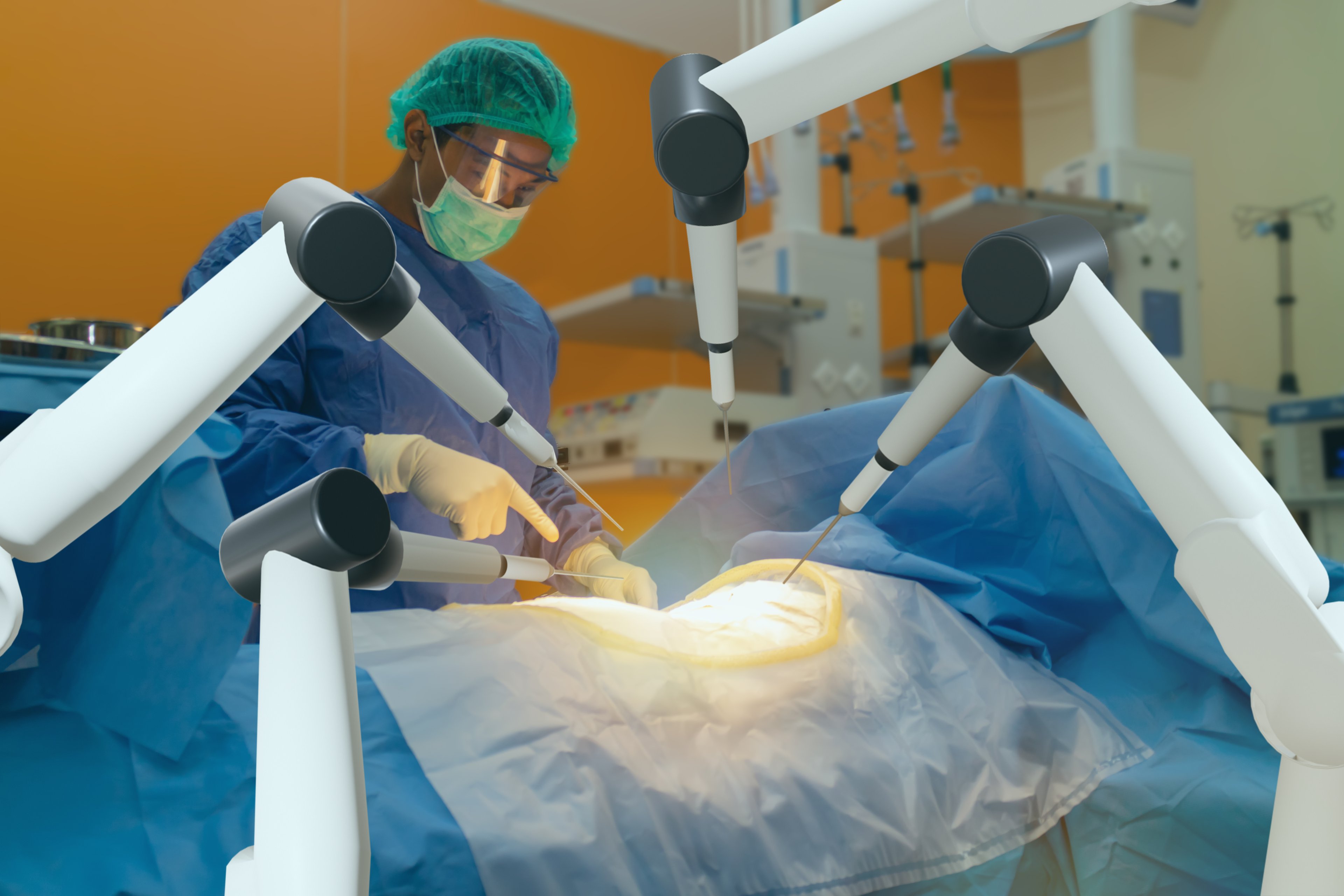They say past success is no guarantee of future performance. This is true. However, companies that have historically outperformed broader equities over long periods sometimes still have the qualities and growth fuel they need to continue doing so.
Take Intuitive Surgical (ISRG 0.83%) and Visa (V 1.21%). These market leaders have left the S&P 500 in the dust over the past decade. And despite some headwinds, they can do the same through 2030. Read on to find out more.
1. Intuitive Surgical
Intuitive Surgical has struggled this year due to the threat of tariffs that are already impacting its financial results. The medical device specialist is also facing increased competition in the market for robotic-assisted surgery (RAS) devices.
However, the healthcare giant just posted better-than-expected earnings, sending its share price soaring. The company's third-quarter revenue climbed 23% year over year to $2.51 billion, driven by a 20% increase in procedure volume. Intuitive Surgical's non-GAAP (adjusted) earnings per share increased 30.4% year over year to $2.40.

Image source: Getty Images.
Intuitive Surgical launched the newest generation (the fifth) of its famous da Vinci system last year, and it continues to be a hit. More than half of the 427 da Vinci systems it placed during the period -- representing 12.7% year-over-year growth -- were of the latest iteration. We can expect more of the same over the next five years: strong growth in procedure volume, fueled by the market for RAS remaining underpenetrated, and continued demand for the company's best-in-class technology, which has proven over the past two decades to deliver excellent clinical outcomes for patients.

NASDAQ: ISRG
Key Data Points
Even increased competition shouldn't be that significant a roadblock for Intuitive Surgical. Not only does it have a rock-solid economic moat thanks to its high switching costs, but the growing availability of robot systems could put pressure on more hospital systems to adopt the technology, leading to even higher demand and a larger overall market. These dynamics could counter the potential pressure that would otherwise come from companies like Medtronic trying to steal Intuitive Surgical's lunch.
Lastly, Intuitive Surgical can deal with tariffs in several ways, including by passing on cost increases to consumers, something it can get away with given its large installed base (it can spread the higher price across its client base) and its position as one of the top products in its niche. Intuitive Surgical may have lagged the market this year, but don't bet against the company crushing the S&P 500 through 2030.
2. Visa
One reason the market is spooked by tariffs is that they could lead to inflation and, potentially, a recession, a bad outcome for most people and corporations. Visa is better equipped than most to deal with this issue. The company has a vast financial ecosystem, with millions of cards in circulation bearing its logo.
Spending won't be as strong in a recession, which would affect Visa's sales, since the company earns revenue from the fees it collects on each transaction it facilitates. However, Visa would benefit from inflation, since its fees are calculated as a percentage of the transaction amount. So, higher prices mean Visa pockets more, a dynamic that may somewhat offset the impact of fewer transactions.

NYSE: V
Key Data Points
Even beyond that, Visa continues to have an attractive long-term growth runway. Cash and check transactions are on the decline and being replaced by digital ones, partly due to the growth of e-commerce, where cash isn't an option. Visa is benefiting from that and should continue doing so, given its strong network effect. The more Visa cardholders there are, the more merchants accept it as a form of payment, and vice versa.
That's why Visa has few direct competitors of note. And the company still sees a massive worldwide opportunity. The stock looks likely to perform well, and even better than the S&P 500, through the end of the decade, and should become a trillion-dollar company by then.





